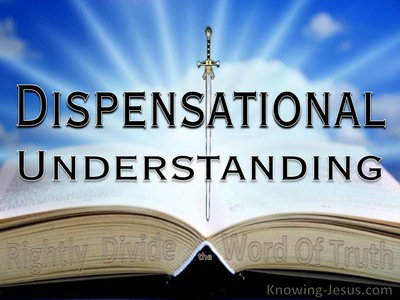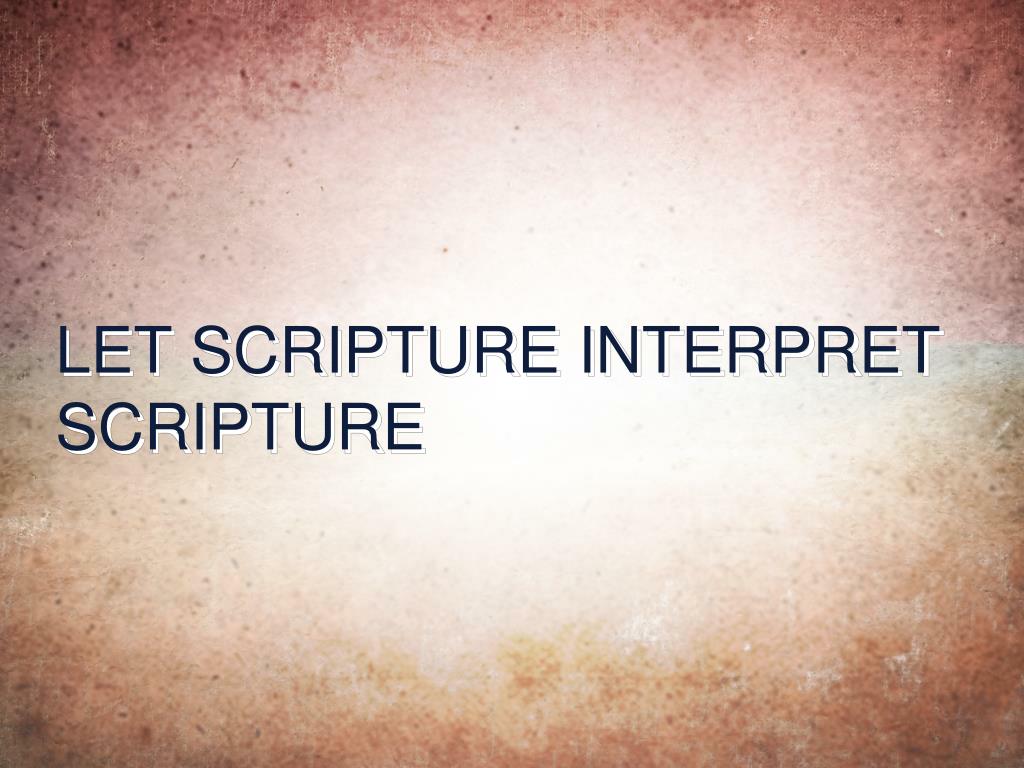Mistakes Christians Make When Studying the Bible
This article is designed to show Christians how to avoid the trap of false indoctrination by learning how to properly study the Scriptures with the purpose of getting at the plain meaning of the original text, as the writer intended.
Mistakes Christians Make When Studying the Bible
2 Tim 2:15 "Study to shew yourself approved unto God, a workman that needeth not to be ashamed, rightly dividing the word of truth." KJV

Studying the Word of God is exciting as we learn God's Truth for not only mankind, but God's Truth for us as individuals, as God gives us His instructions on how to lead a life that pleases Him. To think that the Creator of all mankind, through the power of the indwelling Holy Spirit in Christians, can actually reach and teach us personally on how to receive God's revelation of Truth is more than amazing.


The Bible, however, was written 1500 - 3000 years ago, and for Christians today, the Bible may be a little more complicated to understand than it once was, unless we know just a few simple principles, along with a few questions to ask within those principles.
- You see, there are certain traps that many believers find themselves getting into in this day and age, and I would like to show you how to avoid those traps so that you can glean what God is trying to say to His family.
When studying the Word of God, there are just a few basic principles we need to follow in order to discover the Truths of what God is saying to us in His Word. These principles, called "biblical hermeneutics," are very important for Christians to know when interpreting any scriptural passage. Then within those principles, we need to ask ourselves a few important questions to discover God's Truth. In that, we are "exegetically," which means to dig, researching into the Scriptures to discover what the Holy Spirit is saying through its author to us - His audience - God's family
Big words with simply meanings
- "Biblical hermeneutics:" The study (noun) to correctly interpret the Word of God.
- "Exegetics" is the action (verb) of correctly interpreting the Word of God.

The purpose of using biblical hermeneutics is to get at the plain meaning of the original text as the writer intended, as he wrote to his audience. In doing that, this kind of studying protects us from misusing and misapplying Scripture or allowing biases or other indoctrinations to color or skew our understanding of biblical truth. When we do, God can then lead us to understand His Truth.
God wants us to see His truth, know His truth,
and live His truth.
That’s why biblical hermeneutics is vital to our lives.
Exegetically studying the hermeneutics of Scripture is really fairly easy when we break it apart by addressing a few biblical principles regarding the scriptural passage that we are studying.
First Basic Principle of Interpretation
1. The Bible should be interpreted literally.

The Bible says what it means and means what it says.
The most important principle of biblical hermeneutics is that the Bible should be interpreted literally unless the passage is obviously intended to be symbolicly, figuratively, metaphorically, or even written as a parable.
Seeking the intended meaning of the original text
If you don't understand a particular word or verse, in your Bible, it is now easy to look up the word or verse in its original Hebrew or Koine Greek language. Since very few Christians have studied Greek and Hebrew, God has provided us with the Strong's Concordance to research out the correct Greek or Hebrew meanings of a particular text in the Bible. This handy Concordance can be purchased in hard copy or free on your computer or smart phone for ready reference. (I carry and use regularly the Strong's Concordance app on my smart phone to have as a reference at all times)
Instant research
Sadly, most Christians think they are researching Scripture literally and accurately, but when they come to a passage they don't understand, or even when they have been indoctrinated to believe differently about that text, they automatically allegorically seek out their own meaning or others conclusion as to what the truth may be saying.
Never allegorize Scripture by drawing to your own conclusion for the Bible to say something it was never intended to say. And, never take someone else's opinion as God's Truth. Many false doctrines have been created by the use of allegorizing Scripture. If Scripture does not give the answer, don't make up one or conclude an answer, and certainly don't research other people's opinions on what they think is truth.
To get to the original true meaning of a word or verse, guard against going to Bible commentaries, well-known authors or speakers, even pastors or Bible teachers, or other people's opinions, including the opinions of the society in which you live in. You do not know whether these people have accurately researched the Scriptures to find God's Truth. Many researchers allegorize Scripture to fit their personal opinions, denominational doctrines, societal or even scientific beliefs.
Relying on other people for God's Truth is dangerous and often leads to deception, bringing on false doctrine, lacking in God's Truth. This kind of indoctrination then spreads and divides the Body of Christ.
If you cannot find your answer in the Bible, you cannot make up something to say that it doesn't say. Don't be afraid to say that the Bible is not clear on an issue, or the Bible doesn't tell us.
As believers in Christ, we are each personally responsible before God to accurately research the Scriptures to discover God's Truth.
Our main text for this article is 2 Tim 2:15 "Study to shew yourself approved unto God, a workman that needeth not to be ashamed, rightly dividing the word of truth." KJV
Let's do a quick research in the Strong's Concordance to see what some of these key words mean in its original Greek. (It took me less than five minutes using the Strong's Concordance app on my cell phone).
Study (G4704) = Do diligence, to make effort, be prompt or earnest.
Shew (G3936) = Assist, to stand beside, exhibit, substantiate
Approved (G1384) Properly acceptable
Workman (G2040) Labourer, toiler; teacher, worker
Ashamed (G422) Irreprehensible, not ashamed
Rightly dividing (G3718) To make a straight cut, to dissect (expound) correctly (the divine message)
Word (G3056) Account, something said/thought, reasoning, the Divine Expression
Truth (G225) True, truly, truth, verity.
Let's now take some of those more obvious words and rewrite 2 Tim 2:15 from the original Koine Greek to grasp a clearer and deeper meaning of that scripture verse.
2 Timothy 2:15 (Koine Greek)
.jpg)
2 Tim 2:15 Transliteration into English
2 Tim 2:15 "Be diligent, making a prompt effort to earnestly exhibit and substantiate yourself properly, being accepted and not ashamed before God as a labourer/toiling worker/teacher dissecting and expounding correctly the Divine message of the Divine Expression of God's Truth."
Now I see this verse as more of a command, not a suggestion - to quickly, responsibly, and earnestly seek out God's Truth as written down by the Holy Spirit through the pens of His anointed writers back 2000 years ago. In the translation, the researchers have exegetically researched out through correct hermeneutics, taking the principles of interpretation (as is explained throughout this article) to make sure we, in our English language, understand the correct original meaning of the text, because what was said back then has to mean the same thing today.
We Are Responsible
Second Basic Principle of Interpretation
2. The passage of Scripture must be interpreted historically, grammatically, and contextually.

The extra effort you put into your research may take more time, but it will be worth your investigation to know that you know God's Truth.
Historical Barriers: Seek to understand the culture and times of the people, as well as when and where the Scriptures were written - which include the sociological/geographical/ political and religious culture of that day. This tells us how the author and his audience thought in their day, which plays a vital part in how and why the Scriptures were written.
Here is where Bible commentaries or other Bible study tools can be very useful.

Sociological Barriers
Eastern Versus Western Thinking:
- An Eastern mind - More relational thinking/circular The Old Testament is filled with stories about relationships. God is always dealing with relationships - with Him and with others - always with the intention of bringing man back into right relationship with Him. The Book of Revelation ends right where God started in Genesis, chapter one with man in loving communion and relationship with his God.
- A Western mind - More goal oriented and instructional. A Western mind sees the Book of Genesis as the beginning and the Book of Revelation as the end.
- An Eastern mind - Communicates information based on topics, purpose, and importance.
- A Western mind - Communicates information in an organized manner; pulls individual truths or untruths to study them.
- An Eastern mind - Not interested in the meaning of life, but in the purpose of one's life
- A Western mind - Wants to find the meaning of life.
- An Eastern mind - Wants to know God
- A Western mind - Looks at information about God.
- An Eastern mind believes “If I can reach your heart, your head will follow.”
- A Western mind believes “If I can get your head, I may capture your heart.” Western Thinking vs Eastern Thinking - Living As Disciples
When studying the Word of God, we need to think like Easterners.
Then 1500 - 3000 years ago: Easterners lived in the culture of their times under strict governmental rulership - thinking as an Easterner - more concrete - relational and getting at the heart of the matter.
Now in America: Westerners live, in comparison in luxury under freedom from governmental rulership. We think like Westerners - more abstractly - studying ABOUT something - out of the head and not the heart.
Geographical Barriers:
Then 1500 - 3000 years ago: Across the world - living under very basic conditions, often living in poverty.

Now In America: Owning houses and land/living in luxury. Not wanting for anything, taking things for granted.

Political Barriers:
Then 1500 - 3000 years ago: Under Roman rulership - under political oppression. For Christians, they also often lived under persecution of being imprisoned or killed in a world full of pagan worship.

Now in America: - Living in freedom and democracy away from political oppression.

Religious Barriers:
Then 1500 - 3000 years ago: As a Jew, living under the Mosaic Law, the Jews were commanded to follow the Mosaic Law. Penalty of violation could be stoning.
Under the New Testament, Roman rulership came into power where Jews were surrounded with pagan idolatry. They kept to themselves, having their own council and ruling elders. Christians under the New Covenant were in the minority and always under persecution or imprisonment or death in the midst of pagan idolatry.

Now in America: Everyone is free to choose or reject God. Everyone lives in freedom to worship their chosen God; however, our freedom is being threatened.

Grammatical Barrier: You will also need to follow a passage grammatically, recognizing the idioms or nuances (subtle distinctions) of that day. What a particular word meant in that day may not mean the same today.
- Broken heart (Psm 34:18)
- Drop in the bucket (Is 40:15)
- Writing on the wall (Dan 5)
Contextual Barrier: Interpreting a passage contextually, meaning keeping the word or phrase within the context of what is being written when trying to determine themeaning.


(Comparing Scripture with Scripture)
The context inclues the verses immediately preceding and following within the context of the chapter, the book, and, most broadly, the entire Bible.
As always, the purpose of using biblical hermeneutics is to seek the plain meaning of the original text as the writer intended, as he wrote to his audience.
Third Basic Principle of Interpretation:
3. The scriptural passage must be understood by its right dispensation of time.
Dispensation: A period of time when God is dealing with mankind
 The audiences of the Bible would have been addressed to either Old or New Covenant believers under basically two different dispensations of time.
The audiences of the Bible would have been addressed to either Old or New Covenant believers under basically two different dispensations of time.
Exception: The audiences of the Books of Genesis and Revelation are the exception because Genesis was written to God's people before the Law regarding the beginning of time, the flood, and re-beginnings. The Book of Revelation speaks to the Church, Jews, and also about unbelievers, bringing all of the history of humanity to an ending conclusion, which in God's eyes, simply brings mankind back to its beginnings.
God deals differently with the Jews under the Old Covenant than He does with Christians (the Church) under the New Covenant.
All books under the Old Covenant were written by Jews. All Gospel authors in the New Testament (Matthew, Mark, Luke and John) were also written about the Old Covenant period of time, under the Mosaic Law, and MUST be treated as under the Old Covenant.
Anything before Pentecost was considered under the Old Covenant because Christ had not been resurrected or ascended into heaven, and the Holy Spirit had not come to indwell believers in Christ. As such, the audience of the New Covenant began in Acts, chapter 2, with the birth of the Church, having a different set of rules of understanding for God's plan for humanity.
Authors of the New Covenant were all written by Christians, whether they were Jew or Gentile by birth, such as Paul, John, Peter, Jude and Luke.
.jpg)
Fourth Basic Principle of Interpretation
4. Scripture is always the best interpreter of Scripture.

You do not need any special knowledge or education to understand the core doctrine of sin, grace, forgiveness, and salvation. It is written plain and literal to its audience.
The fourth principle of biblical hermeneutics is that Scripture is always the best interpreter of Scripture. Therefore, we need to compare scripture with scripture when trying to determine the meaning of a passage.
- God's truth harmonizes itself all throughout Scripture; therefore, when we seek the full counsel of the Word of God, comparing scripture with scripture, we will not accept a doctrine simply because one or two isolated verses support a particular doctrine.
- Scripture is clear in its main teachings and doctrines. No special knowledge or education is needed to understand the core doctrine of sin, grace, forgiveness, and salvation.
To summarize everything, let me be so frank as to say, no one believer has all truth! In other words, as believers, none of us are without fault. We each have been indoctrinated by some person, some church, or some organization or society, including science along the way to believe something is truth when it is not, and that belief has stayed with us even until day. While some may find it difficult to believe this statement, indoctrinations are subtle and difficult to overcome, especially if we believe we have the full truth. That kind of thinking; however, leads to pride, looking at other believers whose doctrines differ as the one's being deceived. When in essence, God knows who are the deceived, and He desires that we all come to know His Truth.
God seeks those who seek after His Truth by continuously, humbly, and accurately seek to interpret His Word.

Remember, we are all responsible before God to study, know, and walk in His Truth. Hopefully, undertanding this will encourage us to go deeper into God's Word to discover His Truth. For when we do, we will put away wrong thinking little by little as we grow deeper in our relationship with the Lord.

Seek to reach the plain meaning of the original text as the author, anointed under the Holy Spirit, wrote to his audience.






